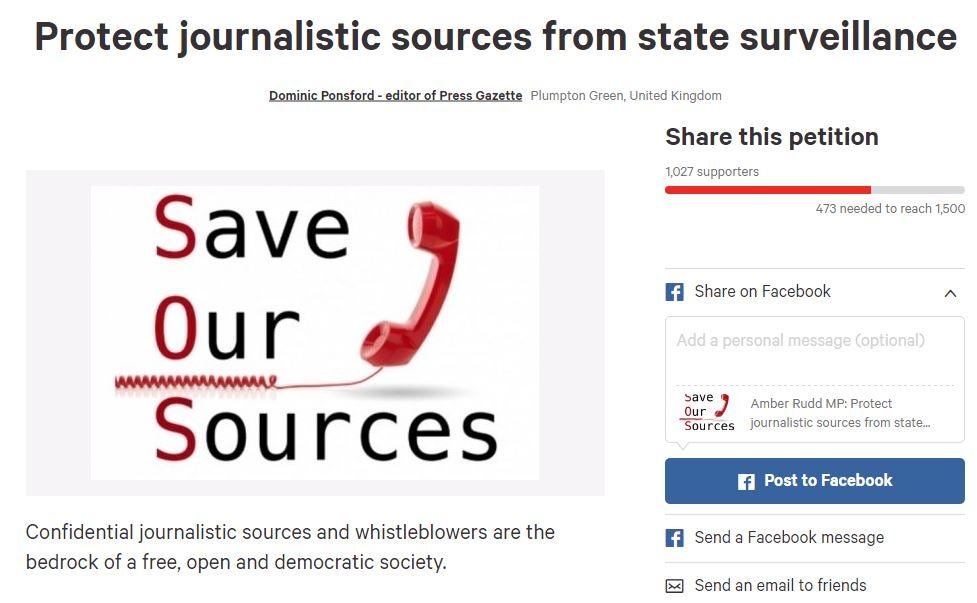
More than 1,000 have now signed a Press Gazette petition urging the Government to amend the snooper’s charter to protect journalists and their sources from state surveillance.
The petition urges Home Secretary Amber Rudd to accept an amendment to the Investigatory Powers Bill put forward by the National Union of Journalist and News Media association with broad support across the journalism industry.
The petition states: “The Investigatory Powers Bill will allow state surveillance of every step of a journalistic investigation in the digital world.
“The powers allow the state to:
- covertly open up encrypted media databases of untransmitted or unpublished material and journalists’ own mobile devices
- view journalists’ communications records (who called who, when and where)
- turn reporters’ mobile phone into tools of surveillance.
“Sources could be put at risk. Journalists could be put in danger by being seen as proxy agents of the state.
“We are asking that the same protection for journalistic activities, information and sources should apply in the digital world as the physical one and that the Investigatory Powers Bill be amended.”
Among those to sign the petition are Computer Weekly editor Bryan Glick, who said: “Source protection is a vital element of the journalism at Computer Weekly. One of my team, Bill Goodwin, was responsible for establishing the right to protect sources in EU law in a famous test case in the nineties – it would be a terrible retrograde step to see those protections diminished.”
Journalist James Garrett said: “I’m signing because I’m a journalist and this pernicious piece of legislation could threaten me and my ability to protect sources who provide information confidentially in the public interest. If this law is passed I fear it would seriously undermine the public’s right to know what the state is doing in its name.”
Nigel Cross from Bishop Auckland said: “Why should digital material be different to any other communication? Would you think it OK for the police to intercept & read personal mail of journalists in the course of an investigation? Of course not, this is a gross infringement of personal liberties.”
Email pged@pressgazette.co.uk to point out mistakes, provide story tips or send in a letter for publication on our "Letters Page" blog
